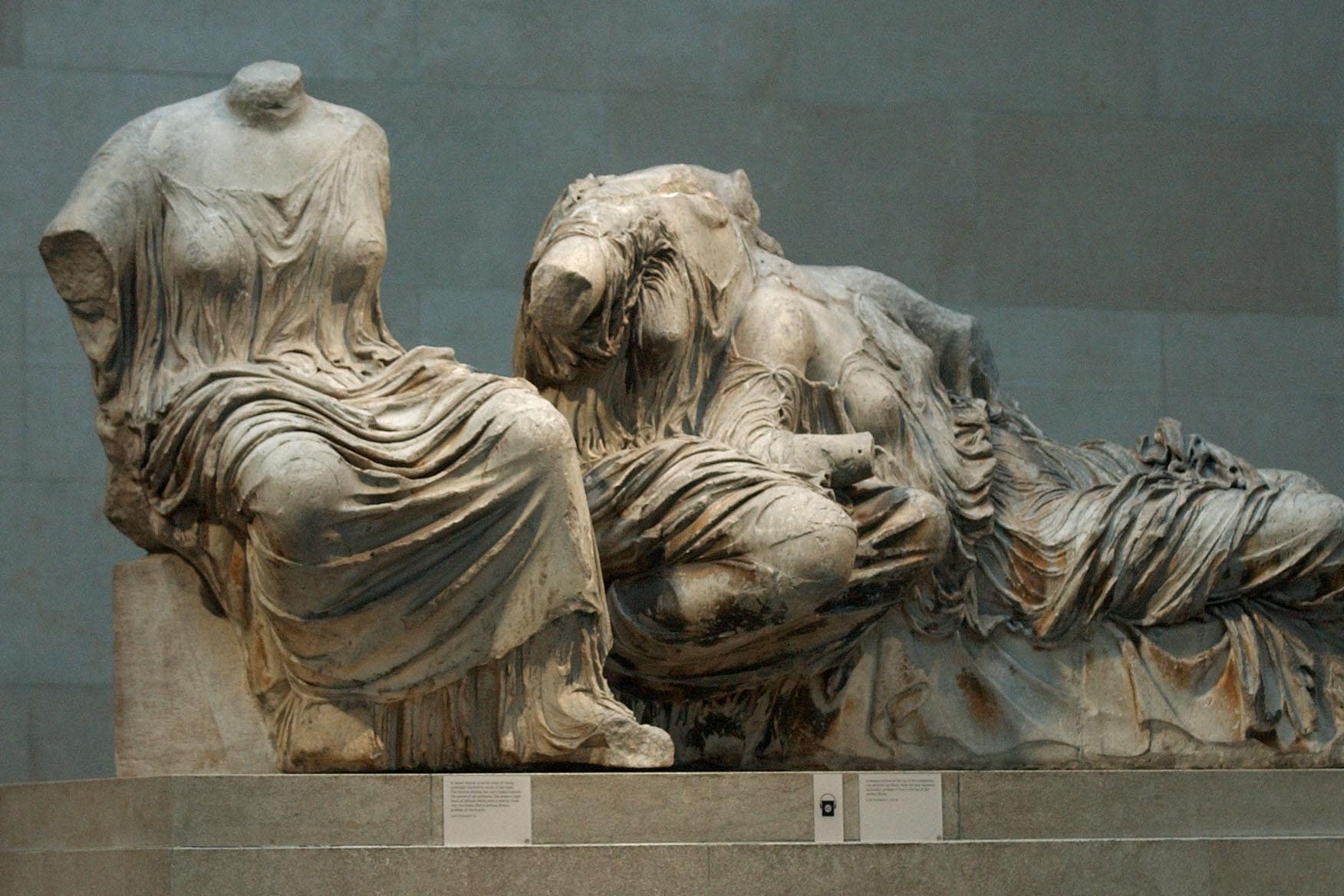New British Museum boss opens door to Parthenon marbles return with ‘lending library’ model
‘I would hope that some form of partnership is possible,’ Nicholas Cullinan said
Your support helps us to tell the story
From reproductive rights to climate change to Big Tech, The Independent is on the ground when the story is developing. Whether it's investigating the financials of Elon Musk's pro-Trump PAC or producing our latest documentary, 'The A Word', which shines a light on the American women fighting for reproductive rights, we know how important it is to parse out the facts from the messaging.
At such a critical moment in US history, we need reporters on the ground. Your donation allows us to keep sending journalists to speak to both sides of the story.
The Independent is trusted by Americans across the entire political spectrum. And unlike many other quality news outlets, we choose not to lock Americans out of our reporting and analysis with paywalls. We believe quality journalism should be available to everyone, paid for by those who can afford it.
Your support makes all the difference.The new director of the British Museum has suggested the institution could pursue a “lending library” approach under his tenure – potentially paving the way for a return of the Parthenon marbles, formerly known as the Elgin marbles.
Nicholas Cullinan OBE, former head of the National Portrait Gallery, declared his ambition to “do something positive” with the museum’s legacy as the debate continues over the return of historically significant colonial artefacts to their countries of origin.
When questioned about returning such items on a temporary basis, including the marbles and the Benin bronzes, Mr Cullinan opened the door to such an agreement.
“I would hope a partnership of some form is possible, and that is something I think we will definitely want to take forward. I think it’s a bit too soon for me to get into the particulars around how that could work, but I’m hopeful,” he said.
While acknowledging that the repatriation of the Parthenon sculptures would not be in his gift, owing to a 1963 act of parliament that bars by law the return of certain works, his willingness to cooperate with other institutions around the world does represent a new footing for the museum, which holds some 8 million artefacts in its collection.

“We can’t give them back because of the act of parliament 1963 - we’re not allowed to deaccession [remove an item from a museum],” he said.
Mr Cullinan added that he is open to collaborating with other museums around the world, and that returning items on a loan basis is a model he favours.
“The challenge for us, again, is not to deny that or suppress that, but to be open – but then to think, ‘How can we do something positive with this legacy?’” he told the BBC in his first interview since taking up his new post.
On the subject of the marbles, he emphasised that it is an exciting time for the museum and that some of the “great things achieved were because of collaboration”.
The Parthenon sculptures are a collection of more than 30 ancient sculptures taken from the Parthenon temple in Greece, and have been held in the British Museum since the early 1800s.
At the start of the 19th century, Athens had been under the rule of the Ottoman empire for 350 years. Lord Elgin, the British ambassador to the Ottomans, was responsible for petitioning the authorities to allow the removal of the figures.
Some two centuries later, custody of the Parthenon sculptures is still hotly contested, with the Greek government having made a formal request for their return in 1983.

Mr Cullinan’s comments come months after the then prime minister, Rishi Sunak, disastrously embroiled himself in a row by cancelling a meeting with Greek prime minister Kyriakos Mitsotakis at the last minute when it emerged that the return of the artefacts was going to be discussed.
The British Museum has faced its share of disruption after proceedings were brought against a former member of staff for stealing and damaging 1,800 items – allegations they deny.
Mr Cullinan praised the one thousand employees at the museum for enduring “quite a forensic and painstaking process” but managing to recover “around half of the artefacts” – a process that was expected to take a minimum of five years.
The row over the resignation of trustees was brought into the conversation, too, because of the museum’s ties to oil and gas company British Petroleum (BP).
During his time at the National Portrait Gallery, Mr Cullinan broke ties with BP, but claimed that its relationship with the British Museum is an entirely different scenario because the museum is reliant on privatised funds in order to subsidise British taxpayers.
The Independent has contacted the British Museum for comment.

Join our commenting forum
Join thought-provoking conversations, follow other Independent readers and see their replies
Comments